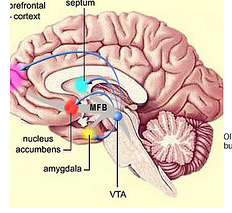Hidden Barriers to Happiness Blog
Have you always wondered about the invisible forces that affect your health, wealth, relationships and happiness?
For over 25 years, first as a neuroscientist, then epidemiologist, and now as a Holistic Brain Health Practitioner, I’ve been passionate about identifying underlying causes of mental and cognitive health challenges. This blog reveals my discoveries from my academic training, my passion for functional medicine, psychology, sociology, energy medicine and what I’ve learned from identifying secrets held by the subconscious.
If you want more health, wealth, better relationships and more happiness, find out what could be getting in the way! When you sign up to get my Top 10 Tips for a Happy & Healthy Brain, you’ll also get 2-4 newsletters per month featuring my blog, “Hidden Barriers to Happiness”.
What are you waiting for? Knowledge is power!
The Best Gift You Can Give Your Valentine
Would you like a deeper and more connected relationship with your Valentine?
Is your marriage feeling old and stale?
Is it feeling like this?

Valentines day is a perfect time to rekindle your relationship!
No, I’m not peddling sexy underwear, a romantic dinner, or a romantic dinner in sexy underwear! It’s something that doesn’t have to be found in a store or a fancy restaurant, nor does it require violins or even any money!
What I’m peddling is simple. Offer your partner a wish. (more…)
How to Pick Yourself Up When Life Sucks
On the way to a speaker’s conference in Vancouver, BC, I carpooled with Peter Feysa, who is a personal trainer, coach and film-maker. He told me that he had just made 30 calls to retirement communities, asking if they would be interested in his workshop. I asked him how it went, and he said that he only got one positive response! I asked, “What makes you so determined when you get turned down so many times? How do get past all the rejection?” He told me the secret to his determination:
7 Tips to Make your New Year’s Resolutions Stick
According to a study published in the Journal of Clinical Psychology, only 71% of people keep their New Years Resolutions past 2 weeks, 64% past 1 month and 46% past 6 months.
So why is it so hard to make changes?
Because most of our actions are driven by subconscious drives! 95% of our brain processes are subconscious, and so if we consciously want to lose weight, our subconscious might be telling us that losing weight isn’t safe.
Then how do some people succeed?
It has to do with our self-efficacy, that is, our belief in our power to achieve our goal. One important way to increase self-efficacy is to be educated about effective change. Below are a few important tips to keep in mind if you want your New Years Resolutions to stick:
How Well Do You Maintain Balance?
Do you feel like your responsibilities are pulling you all over the place? Are you struggling to maintain some balance in your life? If so, you’re not alone. Most of us have so many demands on our time and energy, that life can feel out of control. Take this True/False quiz to see how well you are meeting responsibilities, while also recognizing and fulfilling personal needs and wants.
Are Emotions in the Brain or Body?
As a part of my doctoral training in Neuroscience, we learned that the amygdala was the seat of all emotions. But as a person who suffered from depression, anxiety and panic attacks, I was well aware that that the emotions I felt were very strong in my chest and stomach, so I felt like something was missing in this explanation.
Since then, Western science has begun to expand its view on the subject. I’ve also learned that Eastern medicine has a very different take on the origins of emotions. There are interesting findings that we have from the Emotion Code, and body workers as well. Below I will summarize the different perspectives, and provide context to a unified understanding of where emotions come from, and where they go.
(more…)
Does Inequality Affect Your Happiness
You may not know this about me, but after I got my Ph.D. in Neuroscience, I spent about 10 years in the field of public health (specifically epidemiology) looking for underlying factors that contribute to mental and cognitive health problems across populations. One of the things that resonated with me about the field of public health, was that we looked at risk factors at all levels ranging from the individual, to the relationship level, community level and societal level. While most of my writings have been on things that we can do in our relationships and personally to improve our mental health, we cannot forget the enormous role that our communities and society play in our happiness.
Right now a major contributor to our mental health is the increasing inequality that we are experiencing. Income inequality is at an all time high, and the richest 85 people have as much wealth as the poorest 3.5 billion. And in a comparison across 31 countries, US has the second highest level of inequality, only second to Chile.
So how does income inequality affect our mental health?
How to Deal with Toxic People
Its holiday season! The season of parties and food, and fun and laughter, and sometimes people who we have to see, but would rather not.
So what do we do if we can’t avoid those people that drive us slightly batty?
Below are 5 things we can do to keep our sanity when we encounter a toxic person:
How to Conquer Fear
My Greatest Fear – Public Speaking!
I used to have a tremendous fear of public speaking. Actually, specifically, my fear was about my mind freezing. I would write out every word of my speech or lecture and practice reading it over and over until I could look up at the audience every once in awhile. I didn’t connect well with my audience and I’m sure the tension I felt radiated through the room.
Now I can connect with my audience and even speak at times with no notes! Most importantly, I’m having fun and my audience is enjoying my talks!
So how do we turn fear into fun? (more…)
How can I change an inherited problem? Introducing Epigenetics
Do you feel hopeless about being able to change certain patterns that you think are inherited?
I’m writing this article to set the record straight! The latest science shows that most of the time if you’ve inherited a gene, it is NOT a guarantee that you will inherit a characteristic!
Let me explain why.
Introducing Epigenetics
Why You Might Want to Stay Away from Prince Charming
Prince Charming, First Impressions:
A few years ago, I met a man who was extremely charming, who seemed to have a rich, fascinating and varied life, who seemed smart, talented and accomplished, and who I felt an amazing connection to.
Our relationship felt mutual at the beginning, but it didn’t take long for me to feel like:













